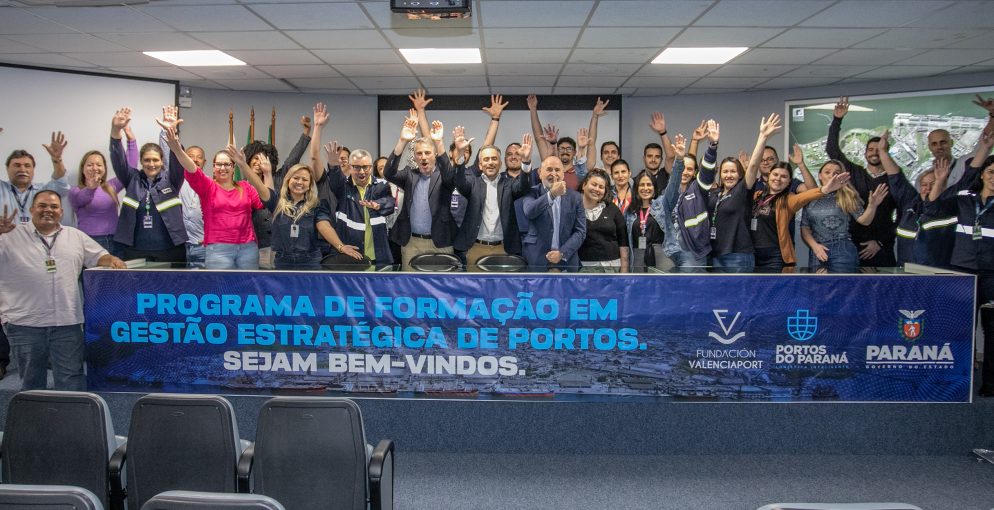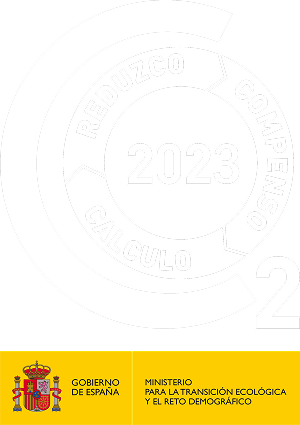Valencia, 29 June 2023. – Yesterday ended the first Training Programme in Strategic Port Management offered by Portos do Paraná and given by the Fundación Valenciaport, in which 40 employees of the public company have participated, with the aim of improving technical knowledge, skills and specific tools for port activity.
In total, 42 hours of study were given, with two blocks of classes: in April and in June. Seven professionals, one Brazilian and six Spanish, were in Paranaguá transmitting European experiences, especially those of the Port of Valencia.
“We have developed a specific training programme for Portos do Paraná, based on the best practices of modern port management. We addressed topics such as the port/city relationship, efficiency in operations, digital transformation, innovation and strategies for the port of the future, for example,” explained Jonas Mendes Constante, Project Director and Senior Consultant in Port Strategy and Innovation at Fundación Valenciaport.
The Head of Strategic Planning and Innovation of the Valencia Port Authority, Juan Manuel Díez, who spoke on Strategic Management and Port Planning, and the Head of Environmental Policies, Raúl Cascajo, who analysed the Port/City Relationship and the Social Responsibility of the Ports, also travelled to Paranaguá.
“We presented a reflection on the current port strategy and the different trends that are affecting port operations in the ports of the world. I believe that weaving knowledge networks between ports is one of the keys to a successful strategy, for example, that the ports of Valencia and Paranaguá share this vision and learn the ways of the others is very relevant”, Díez pointed out.
In Cascajo’s opinion, the course is a great opportunity to share experiences, knowledge related to the interaction of the port with the city in different aspects, not only in European ports, but also in other ports of the world. “The experience of the Port of Paranaguá can help us and together we can learn and establish a series of interactions with the community, according to different circumstances and particularities”, he stressed.
For Camila Teodoro, port agent, participating in the training was interesting for two reasons: “To have a broader vision in relation to the port sector, on a global scale, through all the topics covered in the two phases of the course and the opportunity to immerse myself for a few days in another language. The knowledge acquired during this training will be important for the macro, in the process of improving the organisational culture of Portos do Paraná, because it gave us the opportunity to broaden the perception of points that are essential for the port activity”, he says.
As for the Environment Council advisor, Ines Fernandes, participating in the course on Strategic Port Management was important to acquire more specific knowledge on port management. “It allows a more efficient approach with a broader and clearer vision of both the “problems” a port faces and the changes and modernities we can have in the future. Modernisation is essential as it involves the adoption of advanced technologies and practices to improve operational efficiency, optimise resources, promote sustainability and meet the challenges of the sector,” he concludes.


